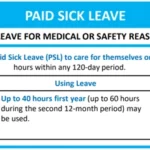Fühlen Sie sich manchmal überfordert und frustriert, wenn es keine Arbeit am Arbeitsplatz gibt? Es kann eine Herausforderung sein, mit dieser Situation umzugehen und produktiv zu bleiben. In diesem Artikel geben wir Ihnen hilfreiche Tipps, wie Sie diese Zeit effektiv nutzen können. Vom Einrichten eines dedizierten Arbeitsbereichs und Reduzieren der Ablenkungen bis hin zur Verbesserung Ihrer Motivation und Kommunikation mit Kollegen und Vorgesetzten – wir haben genau die richtigen Lösungen für Sie. Tauchen Sie ein und entdecken Sie, wie Sie Ihre Zeit ohne Arbeit am Arbeitsplatz optimal nutzen können.
Zusammenfassung
- 1. Schaffen Sie eine produktive Arbeitsumgebung
- 2. Erstellen Sie einen Zeitplan und setzen Sie Ziele
- 3. Bleiben Sie motiviert und konzentriert
- 4. Kommunizieren Sie mit Kollegen und Vorgesetzten
- Zusammenfassung
- Abschluss
- Häufig gestellte Fragen
- 1. Ist es wirklich wichtig, einen dedizierten Arbeitsbereich einzurichten?
- 2. Wie kann ich Ablenkungen reduzieren?
- 3. Ist es notwendig, den Arbeitsplatz angenehm zu gestalten?
- 4. Warum ist es wichtig, einen Zeitplan zu erstellen?
- 5. Wie setze ich realistische Ziele?
- 6. Kann das Aufteilen meiner Arbeit in kleinere Aufgaben helfen?
- 7. Wie finde ich meine persönliche Motivation?
- 8. Wie kann ich Prokrastination vermeiden?
- 9. Kann die Verwendung von Visualisierungen und Belohnungssystemen helfen?
- 10. Warum ist die Kommunikation mit Kollegen und Vorgesetzten wichtig?
- Verweise
1. Schaffen Sie eine produktive Arbeitsumgebung
Create a dedicated workspace where you can focus solely on your work. This can be a specific corner in your home or a separate room altogether. Make sure it is well-organized and free from clutter, which can be distracting. Use a comfortable chair and desk that promote good posture and reduce physical strain. Limit the number of personal items in your workspace to avoid unnecessary distractions. If possible, position your desk near a source of natural light, as this can improve your mood and concentration. By creating a designated and efficient workspace, you can enhance your productivity and work more effectively.
1.1. Richten Sie einen dedizierten Arbeitsbereich ein
To create a dedicated workspace, choose a specific area in your home where you will exclusively work. This could be a spare room, a corner of your living room, or even a well-organized section of your bedroom. Having a separate workspace helps you establish boundaries between work and personal life. Arrange a desk and a comfortable chair to support good posture and minimize physical strain. Ensure that you have access to all necessary equipment and supplies within arm’s reach. Having a dedicated workspace not only enhances productivity but also helps create a mental separation between work and leisure activities. This way, you can maintain focus and efficiency during your designated work hours.
1.2. Reduzieren Sie Ablenkungen
To stay focused and productive, it’s important to minimize distractions in your work environment. Start by turning off any notifications or alerts on your phone or computer, as they can easily interrupt your workflow. Consider using website blockers or apps that help limit time spent on social media or other non-work-related websites. If you find yourself easily distracted by noise, try using noise-cancelling headphones or playing soft background music to create a more conducive work atmosphere. Additionally, communicate with your family or housemates about your need for uninterrupted work time. By proactively reducing distractions, you can maintain better focus and accomplish more during your work hours.
1.3. Gestalten Sie den Arbeitsplatz angenehm
Creating a pleasant and comfortable workspace can greatly improve your productivity and overall well-being. Consider adding personal touches such as plants or artwork to make the space feel more inviting. Choose ergonomic furniture and accessories to support good posture and reduce physical strain. Additionally, pay attention to the lighting in your workspace. Opt for a combination of natural and artificial light sources to minimize eye strain. You can also incorporate calming scents, such as essential oils, or play background music to create a soothing atmosphere. Remember, a well-designed and pleasant workspace can help you stay focused and motivated throughout the day.
2. Erstellen Sie einen Zeitplan und setzen Sie Ziele
To stay organized and focused during your work-from-home period, it’s important to create a schedule and set achievable goals. Start by planning your work ahead of time, outlining the tasks you need to complete for each day or week. Break down larger projects into smaller, more manageable tasks to avoid feeling overwhelmed. Assign specific time slots for each task in your schedule, and prioritize them based on their importance and deadlines. This will help you stay on track and ensure that you allocate enough time for each task. Set realistic goals for yourself, taking into consideration your workload and available time. Aim to accomplish specific milestones within certain timeframes, and celebrate your achievements along the way. By managing your time effectively and setting achievable goals, you can maintain productivity and successfully navigate through your work-from-home journey.
2.1. Planen Sie Ihre Arbeit im Voraus
To effectively manage your workload when there is no work at your workplace, it’s essential to plan your tasks in advance. Create a daily or weekly schedule outlining the specific tasks you need to accomplish. Prioritize your tasks based on their importance and deadlines. Breaking down larger projects into smaller, manageable tasks can help you stay organized and focused. Utilize productivity tools and apps to create to-do lists and set reminders for important deadlines. By planning your work in advance, you can ensure that you stay productive and on track even when there is a lack of workload.
2.2. Setzen Sie sich realistische Ziele
When setting goals for yourself, it’s important to be realistic. Consider your workload, available resources, and time constraints. Setting unrealistic goals can lead to frustration and a decrease in motivation. Break down your larger tasks into smaller, more manageable ones. This allows you to track your progress and achieve a sense of accomplishment as you complete each task. Prioritize your goals based on their importance and deadlines. Additionally, consider using the SMART goal-setting framework – specific, measurable, achievable, relevant, and time-bound – to ensure your goals are well-defined and attainable. By setting realistic goals, you can stay focused, motivated, and make steady progress towards your objectives.
2.3. Teilen Sie Ihre Arbeit in kleinere Aufgaben auf
To tackle your work effectively, break it down into smaller tasks. This approach allows you to focus on one task at a time and gives you a sense of progress as you complete each one. Start by identifying the main objective or goal of your work, then divide it into smaller, manageable components. You can create a to-do list or use project management tools to organize these tasks. Prioritize them based on urgency or importance, and assign a realistic timeline for completion. By breaking your work into smaller tasks, you’ll find it easier to stay focused, maintain momentum, and achieve your overall goals.
3. Bleiben Sie motiviert und konzentriert
Find your personal motivation to stay focused and motivated during your work hours. It can be helpful to set clear and meaningful goals for yourself. These goals should be specific, measurable, attainable, relevant, and time-bound (SMART goals). Breaking your work into smaller tasks can also make it more manageable and help you stay on track. Additionally, it’s important to avoid procrastination by prioritizing your tasks and staying disciplined. You can use visualizations, such as creating a vision board or using a productivity app, to help you stay motivated. Consider implementing a reward system for yourself, where you celebrate completing tasks or reaching milestones. By staying motivated and concentrated, you’ll be able to overcome challenges and accomplish your work effectively.
3.1. Finden Sie Ihre persönliche Motivation
Finding your personal motivation is crucial to staying focused and productive when there is no work at the workplace. Start by identifying what drives you and makes you passionate about your work. It could be the satisfaction of completing a task, the opportunity for career growth, or the desire to make a positive impact in your field. Set clear goals and remind yourself of the reasons why you chose your profession. Additionally, stay connected with your industry by joining relevant professional groups or attending virtual events. Surrounding yourself with like-minded individuals can inspire and motivate you. Remember, finding your personal motivation is the key to staying engaged and committed to your work, even when the traditional work environment is disrupted.
3.2. Vermeiden Sie Prokrastination
To avoid procrastination, it’s important to understand the underlying reasons why you may be putting off important tasks. One effective strategy is to break down your work into smaller, manageable tasks. This can help you overcome the overwhelming feeling of a large project and make it easier to get started. Additionally, set specific deadlines for each task and hold yourself accountable to them. Use techniques like the Pomodoro Technique, where you work for a focused period of time and then take a short break, to maintain focus and avoid burnout. Minimize distractions by turning off notifications on your phone or using website blockers if necessary. Finally, find ways to stay motivated, such as visualizing the end result or rewarding yourself after completing a task. By implementing these strategies, you can overcome procrastination and work more efficiently.
3.3. Nutzen Sie Visualisierungen und Belohnungssysteme
Nutzen Sie Visualisierungen und Belohnungssysteme, um Ihre Motivation aufrechtzuerhalten und sich auf Ihre Ziele zu konzentrieren. Eine Möglichkeit, dies zu tun, ist die Erstellung eines visuellen Fortschrittsdiagramms. Hier können Sie Ihre Aufgaben oder Projekte festhalten und jedes Mal, wenn Sie einen Meilenstein erreichen, können Sie ihn abhaken oder markieren. Dies ermöglicht es Ihnen, Ihren Fortschritt auf einen Blick zu sehen und sich dabei motiviert und erfüllt zu fühlen. Darüber hinaus können Sie sich selbst kleine Belohnungen setzen, um Ihre Motivation noch weiter anzutreiben. Dies könnten zum Beispiel kurze Pausen, ein Lieblingsessen oder das Ansehen einer lustigen Videoclips sein. Indem Sie sich selbst Belohnungen geben, steigern Sie nicht nur Ihre Motivation, sondern schaffen auch einen Anreiz, kontinuierlich an Ihren Aufgaben zu arbeiten. Probieren Sie es aus und erleben Sie, wie Visualisierungen und Belohnungssysteme Ihr Engagement und Ihre Leistung steigern können.
4. Kommunizieren Sie mit Kollegen und Vorgesetzten
Maintaining good communication with your colleagues and superiors is crucial when there is no work at the workplace. Schedule regular virtual meetings to stay connected and informed about any updates or changes in the work environment. This allows for effective collaboration and the opportunity to discuss any challenges or concerns. Clarify expectations and goals with your team to ensure everyone is on the same page. If you need assistance or guidance, don’t hesitate to reach out and ask for support. Open and transparent communication can help foster a sense of unity and teamwork, even when physically separated. Keeping the lines of communication open can contribute to a positive and productive work experience.
4.1. Halten Sie regelmäßige virtuelle Meetings
Um die Kommunikation mit Ihren Kollegen und Vorgesetzten aufrechtzuerhalten, ist es wichtig, regelmäßige virtuelle Meetings abzuhalten. Nutzen Sie Tools wie Videokonferenzplattformen, um sich in Echtzeit auszutauschen und wichtige Informationen zu teilen. Planen Sie diese Meetings im Voraus und stellen Sie sicher, dass alle Teilnehmer darüber informiert sind. Während dieser Meetings können Sie Arbeitsfortschritte besprechen, Fragen klären und neue Ziele setzen. Es ist auch eine gute Gelegenheit, um sich mit Ihren Kollegen zu vernetzen und sich gegenseitig zu unterstützen. Indem Sie regelmäßige virtuelle Meetings abhalten, bleiben Sie in enger Verbindung und können Ihre Arbeitsziele effektiv verfolgen.
4.2. Klären Sie Erwartungen und Ziele
Klären Sie Erwartungen und Ziele deutlich mit Ihren Kollegen und Vorgesetzten. Eine klare Kommunikation ist entscheidend, um Missverständnisse zu vermeiden und sicherzustellen, dass jeder die gleichen Erwartungen hat. Besprechen Sie regelmäßig Ihre Arbeitsziele und wie diese messbar sind. Setzen Sie gemeinsam realistische und erreichbare Ziele, um Ihren Fortschritt zu verfolgen. Halten Sie Feedbackschleifen offen und besprechen Sie regelmäßig den Fortschritt Ihrer Arbeit. Durch diese Transparenz stellen Sie sicher, dass alle auf dem gleichen Stand sind und dazu beitragen, dass die Ziele des Teams erreicht werden. Bei Fragen oder Unsicherheiten zögern Sie nicht, um Unterstützung zu bitten. Zusammenarbeit und klare Zielsetzung fördern ein produktives Arbeitsumfeld.
4.3. Bitten Sie um Unterstützung, wenn nötig
Wenn Sie sich in einer Situation befinden, in der es keine Arbeit am Arbeitsplatz gibt, zögern Sie nicht, um Unterstützung zu bitten, wenn Sie sie benötigen. Es ist wichtig, den Kontakt zu Kollegen und Vorgesetzten aufrechtzuerhalten und sie über Ihre Situation zu informieren. Teilen Sie ihnen mit, ob Sie zusätzliche Aufgaben benötigen oder an Weiterbildungsprogrammen teilnehmen möchten. Indem Sie offen und transparent kommunizieren, können Sie möglicherweise neue Möglichkeiten und Verantwortlichkeiten entdecken. Verpassen Sie auch nicht die Chance, von den Erfahrungen und Fachkenntnissen Ihrer Kollegen zu lernen. Nutzen Sie diese Zeit, um Beziehungen aufzubauen und sich in Ihrem Team zu engagieren. Durch das Bitten um Unterstützung können Sie Ihre Arbeitsumgebung positiv beeinflussen und möglicherweise neue Chancen für Ihre Karriere schaffen.
Zusammenfassung
Zusammenfassend lässt sich sagen, dass es in Zeiten ohne Arbeit am Arbeitsplatz wichtig ist, eine produktive Umgebung zu schaffen, realistische Ziele zu setzen und motiviert zu bleiben. Durch die Einrichtung eines dedizierten Arbeitsbereichs und die Minimierung von Ablenkungen können Sie Ihre Konzentration verbessern. Ein gut strukturierter Zeitplan und das Aufteilen der Arbeit in kleinere Aufgaben helfen Ihnen dabei, effizient zu arbeiten. Es ist auch wichtig, sich selbst zu motivieren, Prokrastination zu vermeiden und Visualisierungen und Belohnungssysteme zu nutzen. Nicht zuletzt sollten Sie regelmäßig mit Kollegen und Vorgesetzten kommunizieren, um sich abzustimmen und Unterstützung zu erhalten, wenn nötig. Mit diesen Tipps können Sie Ihre Zeit ohne Arbeit am Arbeitsplatz optimal nutzen und produktiv bleiben.
Abschluss
Zusammenfassend lässt sich sagen, dass es herausfordernd sein kann, mit einer Situation umzugehen, in der es keine Arbeit am Arbeitsplatz gibt. Indem Sie eine produktive Arbeitsumgebung schaffen, einen Zeitplan erstellen und sich realistische Ziele setzen, können Sie jedoch effektiv bleiben. Es ist auch wichtig, motiviert und konzentriert zu bleiben sowie die Kommunikation mit Kollegen und Vorgesetzten aufrechtzuerhalten. Nutzen Sie diese Tipps, um Ihre Zeit ohne Arbeit am Arbeitsplatz optimal zu nutzen und produktiv zu bleiben. Für weitere Informationen zu ähnlichen Themen, besuchen Sie unseren Artikel über Verhinderungsgründe.
Häufig gestellte Fragen
1. Ist es wirklich wichtig, einen dedizierten Arbeitsbereich einzurichten?
Ja, es ist wichtig, einen dedizierten Arbeitsbereich einzurichten, da dies Ihnen hilft, sich mental auf Ihre Arbeit zu konzentrieren und Ablenkungen zu minimieren.
2. Wie kann ich Ablenkungen reduzieren?
Es gibt verschiedene Möglichkeiten, Ablenkungen zu reduzieren, z.B. indem Sie Ihren Arbeitsbereich von störenden Geräuschen isolieren, Benachrichtigungen auf Ihrem Handy ausschalten und einen klaren Zeitplan für Ihre Arbeit festlegen.
3. Ist es notwendig, den Arbeitsplatz angenehm zu gestalten?
Ja, ein angenehmer Arbeitsplatz kann Ihre Stimmung und Motivation verbessern. Verwenden Sie inspirierende Bilder, Pflanzen oder angenehme Düfte.
4. Warum ist es wichtig, einen Zeitplan zu erstellen?
Das Erstellen eines Zeitplans hilft Ihnen, strukturiert zu arbeiten, Prioritäten zu setzen und sicherzustellen, dass Sie Ihre Aufgaben pünktlich erledigen.
5. Wie setze ich realistische Ziele?
Um realistische Ziele zu setzen, sollten Sie Ihre Fähigkeiten und den verfügbaren Zeitrahmen berücksichtigen. Brechen Sie große Aufgaben in kleine, überschaubare Schritte auf.
6. Kann das Aufteilen meiner Arbeit in kleinere Aufgaben helfen?
Ja, das Aufteilen Ihrer Arbeit in kleinere Aufgaben macht sie leichter zu bewältigen und erhöht Ihre Produktivität und Motivation.
7. Wie finde ich meine persönliche Motivation?
Denken Sie darüber nach, was Ihnen an Ihrer Arbeit wichtig ist und wie sie zu Ihren langfristigen Zielen beiträgt. Machen Sie sich bewusst, welchen Wert Ihre Arbeit hat.
8. Wie kann ich Prokrastination vermeiden?
Um Prokrastination zu vermeiden, können Sie sich klare Zeitlimits setzen, To-Do-Listen verwenden und Belohnungen für erledigte Aufgaben festlegen.
9. Kann die Verwendung von Visualisierungen und Belohnungssystemen helfen?
Ja, Visualisierungen, wie beispielsweise das Erstellen einer Vision Board, und Belohnungssysteme können Ihre Motivation steigern und Ihnen helfen, Ihre Ziele zu erreichen.
10. Warum ist die Kommunikation mit Kollegen und Vorgesetzten wichtig?
Die Kommunikation mit Kollegen und Vorgesetzten hilft Ihnen, Informationen auszutauschen, Erwartungen zu klären und Unterstützung zu erhalten, wenn Sie sie brauchen.







